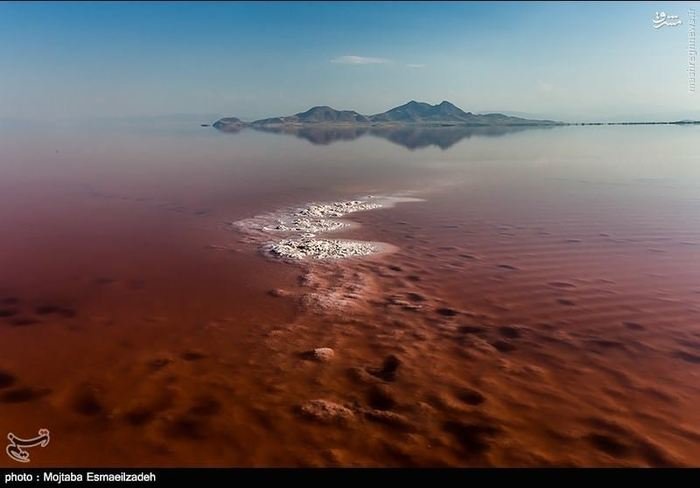‘I’m Lake Urmia’ campaign seeking international support

TEHRAN — The “I’m Lake Urmia” hashtag is a newly initiated campaign spearheaded by the public aims to collect one million signatures to push the United Nation to take serious measures to restore the lake.
Lake Urmia in northwestern Iran was once the largest lake in the Middle East and the sixth-largest saltwater lake on Earth with a surface area of approximately 5,200 square kilometers. The lake has shrunk to 10 percent of its former size mostly due to damming of the rivers that flow into it and pumping of groundwater from the area.
Launched in late August in the platform of social media, the campaign was first supported by actor Reza Kianian and later was taken up by other actors, politicians, and athletes.
Demanding the public to be socially accountable for their actions, which may directly or indirectly affect this valuable ecosystem, the campaign is designed to collect one million signatures to urge the United Nation to consider ways to help revive the precious lake.
So far some 57,000 online signatures are collected.
Collecting one million signature should not be so difficult in a country with a population that now stands at about 80 million. We all should hold responsible for the harms we inflict upon the nature and it is undeniable how tightly our lives are interwoven with the environment.
People can either refer to Instagram or telegram or text ‘1’ to the number 30007040 to announce their support for the campaign.
Lake Urmia restoration, a priority
The administration of President Hassan Rouhani has made Lake Urmia a priority as he had made promises about restoring the lake during his election campaign, and his administration has allocated budgets to improve infrastructure and water conservation in the area.
On Sunday, the government approved to allot some 3 trillion rials (nearly $86 million) for restoration of the lake.
The money is aimed to go to projects and schemes for reviving the lake for the current Iranian year ending in March 2017.
The cabinet has also agreed to enact a ban on any agricultural development or other activities which result in depleting the groundwater resources and damming in the lake basin.
Energy and agriculture ministries are also tasked with taking punitive measures in case of any violation of the newly adopted law and not issuing any licenses permitting the aforementioned activities.
Shrinking of the lake has diminished a fragile ecosystem
In an article publish in The Guardian on September 23 co-authored by doctoral researcher Shirin Hakim and water management expert Kaveh Madani at the Centre for Environmental Policy of Imperial College, London, the two described Lake Urmia surface as “an area facing a high risk of salt storms”.
The article pointed out that the shrinking of the lake has diminished a fragile ecosystem, with the gradual disappearance of native wildlife including the brine shrimp Artemia and migratory birds like flamingos and pelicans. Such degradation threatens dire economic consequences.
One of the main factors contributing to the state of Lake Urmia is the interference in the natural flow of water into the lake by over 50 dams. The damage has been compounded by unregulated withdrawal of water, water-intensive irrigation and the unsustainable use of fertilizers.
MQ/MG
